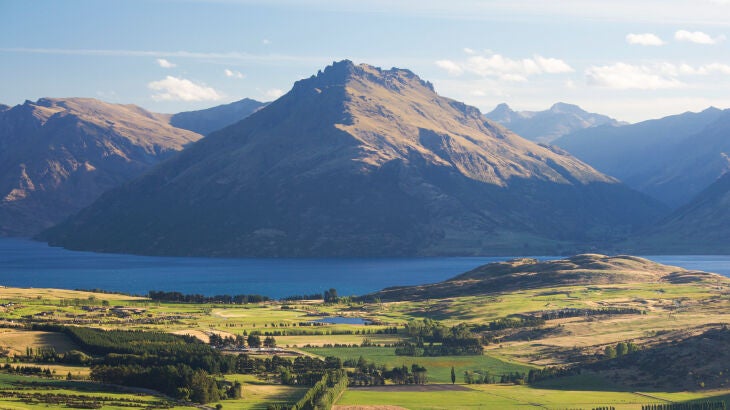Country -
We’re all in this together

While the South Island has experienced an abundance of sunshine hours leading into autumn, for many in the North Island, in the wake of confronting summer rainfall and Cyclone Gabrielle’s relentless pummelling of East Coast regions, this is a summer we’d rather forget.
The weather phenomena have sorely tested the resilience of our people, and severely compromised the integrity of huge tracts of our productive land.
With swathes of the North Island now in long-term recovery mode, it’s given us all pause for thought.
As we have reconnected with our teams, clients and rural networks over the last few weeks, it’s been heartening to see first-hand how communities have mobilised to provide the immediate necessities of life and joined forces to assist in the clean-up.
Now, as people in the affected areas move through the next phases and adjust to living with the realities left behind by the destruction, the impacts on formerly thriving regional economies cannot be downplayed.
For Northland, South Auckland, Hawke’s Bay, and Gisborne – all significant contributors to the country’s food bowl – it will be hard to come back from and, with food supply chains disrupted, expect to see big gaps in the produce aisles at your supermarket and on the export circuit.
Without wishing to minimise the fallout being seen currently, the widespread floods in Hawke’s Bay back in 1938, and the fury of Cyclone Bola on the East Coast in 1988, show us how fragile we are, but also that regional New Zealand can rise from nature’s ashes.
We know it will be a slow process, and no amount of money would fix it overnight, but it is clear that remedial action will test and challenge the country’s investment and social priorities.
As if the country didn’t already have a significant infrastructural investment deficit, considerable capital investment is going to be required from somewhere to reinstate vital connectors following the widespread damage sustained to roading arterials and bridges.
With the government announcing a ministerial inquiry into forestry slash following the destruction of Cyclone Gabrielle, the widespread planting of trees to offset emissions will again call into question whether “plant and pollute” is an appropriate approach for NZ Inc.
The banking and insurance sectors will no doubt be working through their respective exposure to their clients, and this will likely require risk adjustments and a review of policy settings – with flow-on considerations for all landowners in New Zealand as a whole.
Just what this will ultimately mean for the value of rural land and the way landowners manage paths forward, is unclear.
All-of-sector support will be required to get rural New Zealand back on its feet, and for Bayleys, that reinforces our commitment to being embedded in rural communities which are served by our national network of offices, and where our people live, work and have deep connections.
Our ties go back generations and it is also our families’ futures.
Seeing communities coming together to support one another is the Kiwi way, but we also know how hard it is to ask for help and the demands placed on voluntary organisations who support the rural sector will escalate in the coming months and years.
We are very proud to partner with some extremely important voluntary organisations including The Rural Support Trust and Surfing for Farmers to support rural health and well-being.
Releasing the pressure valve will continue to be essential as rural New Zealand gets back on the horse, and we recognise how important our commitment is to these organisations.
Reflecting on the real estate market coming into autumn and prior to the recent weather events, prices attained for high quality farms with scale were holding steady, despite commodity prices coming off peaks, and while activity was down in spring, and we noted some downward price adjustments in parts of the sector, buyers remain prepared to invest in the long-term nature of rural assets.
Now we need to balance the rear view mirror data with potentially wobbly short-term confidence, as margins are reduced and those areas that have experienced significant climatic events regroup, and investors keep rural asset acquisition in perspective.
While there is often a focus on returns of the immediate seasons, investment in rural land is generally a long-game investment decision.
The entire real estate sector will undergo yet another reset as asset resilience, climate risk management, sustainability and even managed retreat become part of everyday life.
Bayleys’ overarching mantra is “altogether better” – it defines our business model, the way we operate daily, and how we leverage the strengths of the team.
This principle has been mirrored across the country as people have galvanised to support our weather-affected rural communities.
Please – get in touch, even if just for a chat, because we’re all in this together.
Read more...